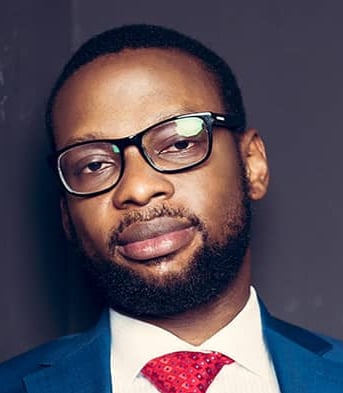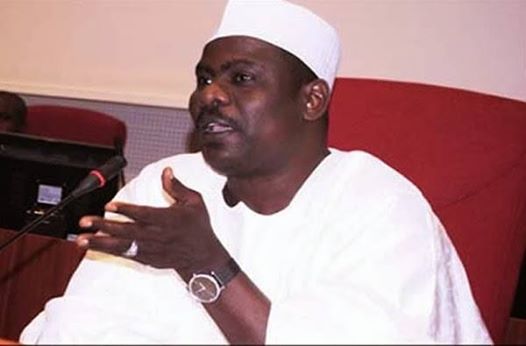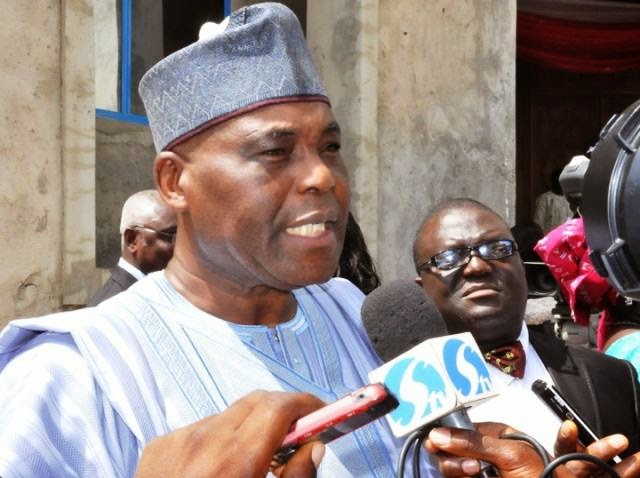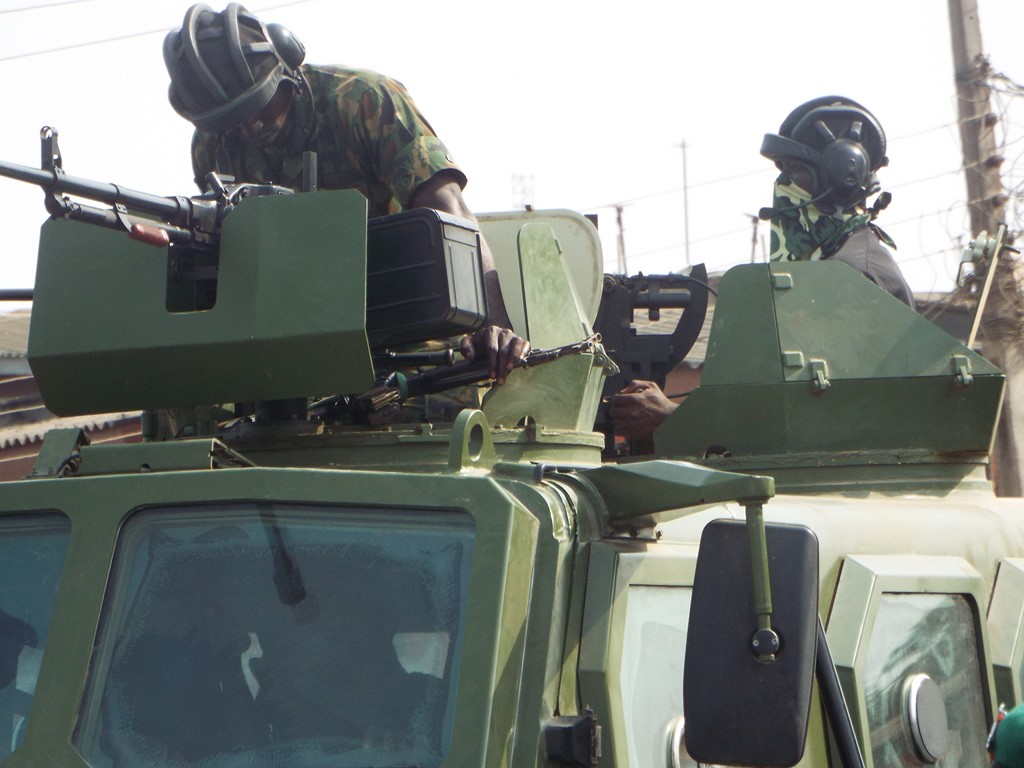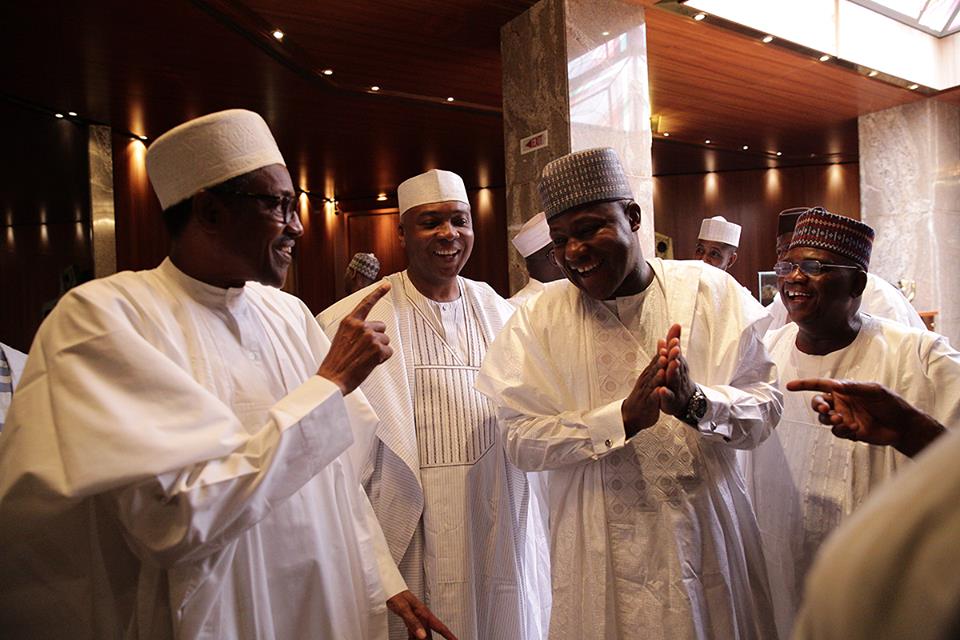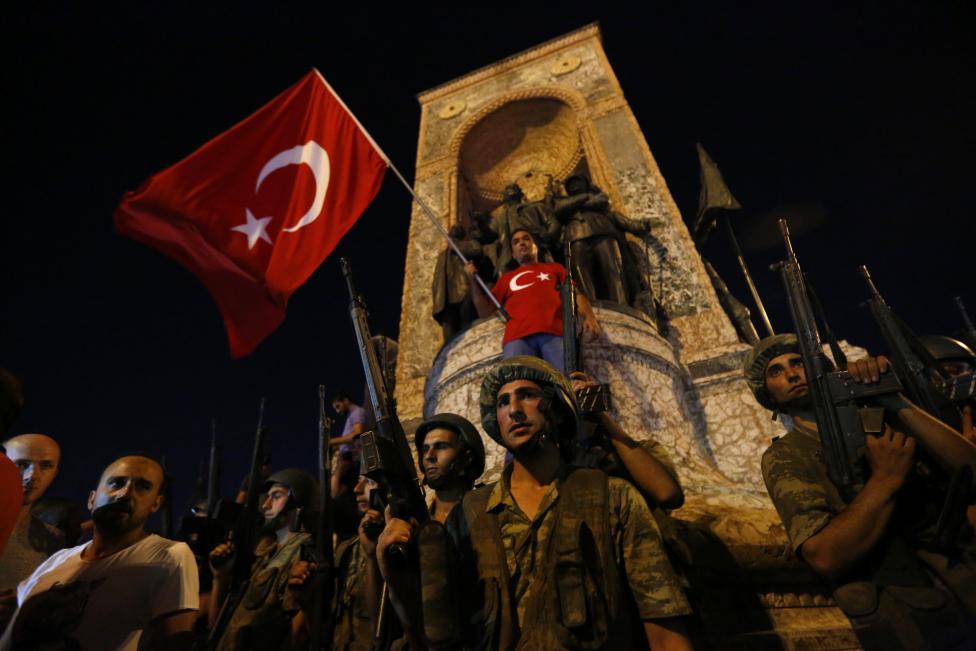If I had the good fortune to interview a former Nigerian leader, I would pick Olusegun Obasanjo without dithering for a second!
That won’t be because I am a native of Ogun state like he is, neither will it be because he is the easiest to physically access (my parents live just 2km off his OOPL mansion in Abeokuta).
While someone else may even choose to pick four former leaders before remembering my pick, it is hard to imagine that there is any journalist who won’t be enamoured by the sheer thought of sitting with Obasanjo for just 10 minutes, to discuss the country he presided over for a cumulative 11 years (Well, we’ll never forget — even though he’ll never admit — how he desperately craved to add four more years to his stay in office!).
But for all his foibles, love him or loathe Obasanjo the soldier or Obasanjo the president, you have to be enthralled by Obasanjo the talker! On Monday, he proved why, time and again, and despite his old age, he remains in hot demand in the international community.
Advertisement
Only in February, Commonwealth chose him to lead a 13-member observer group to the Ugandan presidential election; and after recently returning to the country following the latest of such international trips, Obasanjo headed to the presidential villa on Monday to discuss some of his findings with President Muhammadu Buhari.
When the visit ended, he spoke with the media briefly, explaining that he was visiting this time because he had “some messages for the president”.
“Not too long ago I was in Liberia and Gambia and I have messages these two countries will want me to deliver to the president,” he said. ”
Advertisement
Also, only yesterday, I came back from Seychelles Island where I attended this year’s annual general meeting of Africa Export Development Bank. And there are aspects of the proceedings that I think I should be update the President.”
One journalist wondered if it was time for the ex-president to “slow down” on his numerous trips. And yes, it was a valid question. At 79 (possibly older), Obasanjo, really, should be slowing down.
“You must enjoy all these travelling?” he asked, perhaps innocuously.
“Travelling is a good education,” Obasanjo replied. “What you will learn about a country by visiting that country for two or three days you won’t learn by reading through books.”
Advertisement
“Do you intend to slow down?” the journalist followed up.
Trust Baba, he had a ready-made comeback: “May God not allow you to slow down now!”
On they moved to another matter: On Thursday, Abdulmumin Jibrin, former chairman of the federal house of representatives appropriations committee, had accused Yakubu Dogara, the speaker, and three other principal officers of the house of corruption, of padding the 2016 budget to the tune of billions of naira.
Removed as chairman of the committee days earlier, Jibrin said his ouster was motivated by his refusal to yield to the demand of Dogara and the trio to “allocate to themselves N40bn out of the N100bn allocated to the entire NASS”.
Advertisement
“These members of the body of principal officers were not comfortable with my independent disposition and my refusal to cover up their unilateral decision to allocate to themselves N40bn out of the N100bn allocated to the entire NASS,” he had said.
The allegations were denied by Abdulrazak Namdas, spokesman of the house.
Advertisement
So the journalist sought Obasanjo’s opinion, having previously criticised the legislature for its corruption and “obscene opulence”. This was question: “You must be worried about the issue of corruption in NASS particularly with what has now come out in the open buttering one of your statements in the past that the national assembly is corrupt?”
Obasanjo responded, but he answered by saying nothing, really.
Advertisement
“Well, if you said that I have said it in the past, and if there are people who didn’t believe what I said in the past then you now say that what has come out confirms what I said in the past, then you can say what I said in the past is what I will say now.” Witty or just downright hilarious?
So, what did he actually say in the past?
Advertisement
On January 13, 2016, Obasanjo had written to Bukola Saraki, president of the senate, and Dogara, to specifically accuse lawmakers of fixing and earning salaries and allowances far above what the Revenue Mobilisation Allocation and Fiscal Commission (RMAFC) approved for them.
He also alleged that most of the 109 senators and 369 representatives were receiving constituency allowances without maintaining constituency offices as required by the law.
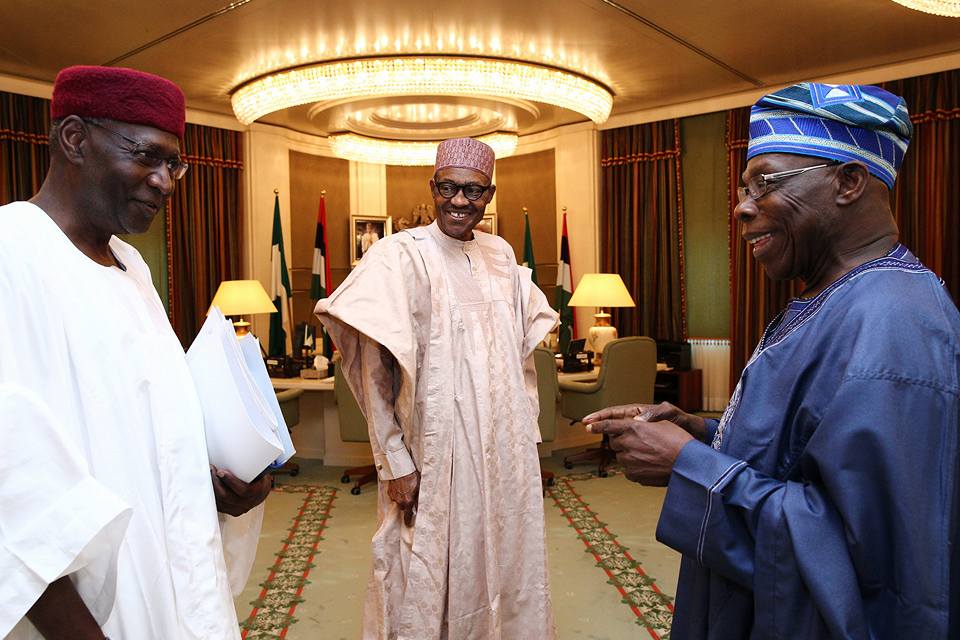
He said: “On a few occasions in the past, both in and out of office as the President of Nigeria, I have agonised on certain issues within the arms of government at the national level and among the tiers of government as well. Not least, I have reflected and expressed, outspokenly at times, my views on the practice in the National Assembly which detracts from distinguishness and honourability because it is shrouded in opaqueness and absolute lack of transparency and could not be regarded as normal, good and decent practice in a democracy that is supposed to be exemplary. I am, of course, referring to the issue of budgets and finances of the National Assembly…
“A situation where our national budget was predicated on $38 per barrel of oil with estimated 2 million barrels per day and before the budget was presented, the price of oil had gone down to $34 per barrel and now hovering around $30 and we have no assurance of producing 2 million barrels and if we can, we have no assurance of finding market for it, definitely calls for caution. If production and price projected in the budget stand, we would have to borrow almost one third of the 6 trillion naira budget. Now beginning with the reality of the budget, there is need for sober reflection and sacrifice with innovation at the level of executive and legislative arms of government. The soberness, the sacrifice and seriousness must be patient and apparent…
“By our Constitution, the Revenue Mobilisation, Allocation and Fiscal Commission is charged with the responsibility of fixing emoluments of the three arms of government: executive, legislature and judiciary. The Commission did its job but by different disingenuous ways and devices, the legislature had overturned the recommendation of the Commission and hiked up for themselves that which they are unwilling to spell out in detail, though they would want to defend it by force of arm if necessary. What is that?
“Mr. President of the Senate and Hon. Speaker of the House, you know that your emolument which the Commission had recommended for you takes care of all your legitimate requirements: basic salary, car, housing, staff, constituency allowance. Although the constituency allowance is paid to all members of the National Assembly, many of them have no constituency offices which the allowance is partly meant to cater for. And yet other allowances and payments have been added by the National Assembly for the National Assembly members’ emoluments. Surely, strictly speaking, it is unconstitutional.
“There is no valid argument for this except to see it for what it is – law-breaking and impunity by lawmakers. The lawmakers can return to the path of honour, distinguishness, sensitivity and responsibility. The National Assembly should have the courage to publish its recurrent budgets for the years 2000, 2005, 2010 and 2015. That is what transparency demands. With the number of legislators not changing, comparison can be made. Comparisons in emoluments can also be made with countries like Ghana, Kenya, Senegal and even Malaysia and Indonesia who are richer and more developed than we are.”
In essence, what Obasanjo said on Monday could not be understood without fully reading his January 13 letter. By saying “if you said…” and “what I said…” and “you can say what I said…”, Obasanjo had simply intended, without expressly saying: “Read my lips; I said they were corrupt in the past, I’ll say it again.”
But it wasn’t all an afternoon of comebacks, parables and history lessons. He was asked if he would favour an investigation into budget padding scandal, and he at least offered a straightforward answer, for once.
“It is not a question of investigation,” he said. “We should get men and women of integrity in the place and the president should be very vigilant; whatever should not pass should not pass.”
Now, that is vintage Obasanjo for you: one moment he is exclaiming, the other he is soft and straight to the point. You never know what exactly to expect — and there is hardly anything that makes an interview more adrenaline-pumping for a journalist than that air of unpredictability.
Add a comment
